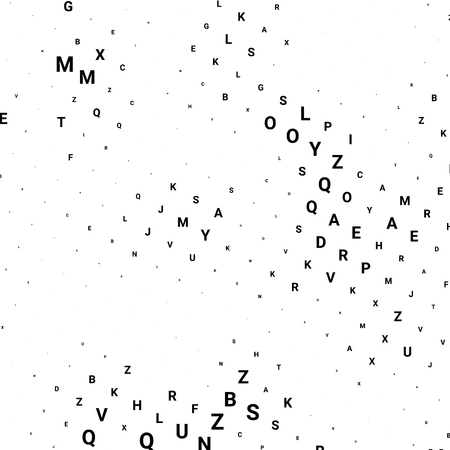Introduction: Setting the Scene
Astrology has long held a unique place within British culture, weaving its way through centuries of folklore, literature, and even political discourse. From Shakespeare’s musings on the stars to the enduring popularity of daily horoscopes in national newspapers, the British fascination with celestial patterns is both deep-rooted and enduring. This curiosity extends beyond personal fate, often intersecting with major societal events and shifts. In recent years, few moments have been as seismic for the UK as Brexit—a political event that not only redefined Britain’s relationship with Europe but also triggered widespread reflection on identity, destiny, and collective direction.
Within this context, there is a growing interest in exploring whether astrological phenomena—such as eclipses or planetary alignments—might correlate with pivotal moments in British political history. Could the timing of such events offer insight into their deeper significance or emotional resonance across society? In this series, we will examine how astrology has influenced public consciousness in the UK and consider its potential to shed light on landmark political developments, using Brexit as our central case study. By blending psychological reflection with practical astrological analysis, we aim to provide a thoughtful perspective on how cosmic cycles might mirror or magnify transformative changes within the nation.
2. Astrological Foundations: Key Planetary Events
When examining the dramatic political shifts in the UK, astrology provides a fascinating lens to understand the underlying cosmic currents. Throughout British history, significant astrological events—such as solar and lunar eclipses, planetary retrogrades, and major transits—have coincided with times of national transformation and uncertainty. These celestial occurrences often symbolise periods of revelation, revision, or sudden change, echoing the collective mood of the country.
Eclipses: Catalysts for Change
Eclipses have long been viewed as omens of upheaval and turning points. In UK history, both solar and lunar eclipses have aligned closely with pivotal moments. For example, the Brexit referendum in June 2016 was preceded by a series of eclipses across the Virgo-Pisces axis, highlighting themes of discernment versus idealism—a dynamic that played out in public discourse. Eclipses tend to bring hidden issues to light and accelerate decisions that have been brewing beneath the surface.
Retrogrades: Rethinking and Reversals
Planetary retrogrades, especially those involving Mercury (the planet of communication) or Mars (action and conflict), are frequently associated with periods of review, reconsideration, or political backtracking. The protracted debates and delays surrounding Brexit negotiations were marked by several key retrograde periods, during which plans were revisited and agreements unravelled. Retrogrades urge us to pause and reassess, often leading to important policy revisions or leadership changes.
Significant Transits: Outer Planets and Social Shifts
The slow-moving outer planets—Uranus, Neptune, and Pluto—herald generational change when making significant aspects to the UKs natal chart or to each other. Uranus transiting Taurus (since 2018) has coincided with economic upheaval and questions about national identity. Pluto’s ongoing journey through Capricorn has mirrored deep transformations in governmental structures. These transits operate on a collective level, shaping societal attitudes and the foundations of power.
Summary Table: Major Astrological Events During Political Shifts
| Year/Period | Astrological Event | Political Shift |
|---|---|---|
| 2016 | Virgo/Pisces Eclipses | Brexit Referendum |
| 2019-2020 | Mercury & Mars Retrogrades | Brexit Negotiations & Delays |
| 2018–Present | Uranus in Taurus Transit | Economic Policy Changes |
| 2007–2024 | Pluto in Capricorn Transit | Governmental Restructuring |
Navigating Uncertainty Through Astrology
By tracing these astrological cycles alongside political events, we gain both perspective and reassurance: times of turmoil are part of larger patterns. With self-awareness and practical reflection, individuals and communities can use these cosmic markers as guides—helping them stay grounded while navigating national uncertainty.

3. Brexit Unveiled: Charting the Stars
Setting the Scene: The Astrological Moment of the Referendum
The UK’s Brexit referendum, held on 23 June 2016, marked a seismic shift in British political history. To astrologically analyse this event, we begin by casting a chart for 10pm BST—the official closing time of polls—using London as the location and commonly-used house systems such as Placidus or Equal House, which are standard practice among British astrologers. This approach respects UK conventions and provides a culturally resonant astrological framework for understanding collective experiences.
Planetary Positions: Signs of Change and Tension
At the moment polls closed, the Moon—the classic symbol of public mood—was in Aquarius, a sign renowned for its independent spirit and desire for reform. This placement alone hints at the electorate’s yearning to break free from established ties. Meanwhile, Uranus, planet of upheaval and sudden change, occupied fiery Aries, making tense angles to both Pluto in Capricorn and Mars in Scorpio. These aspects suggest an underlying energy of disruption, power struggles, and deep-seated desire for transformation within the nation’s psyche.
Eclipses: Shadows Cast Over Decision-Making
Astrologically speaking, eclipses are powerful catalysts for change, often bringing hidden matters into the open. The Brexit referendum occurred just weeks after a significant lunar eclipse in Sagittarius—a sign linked to international relations and ideology. Eclipses tend to stir up collective emotions and can precipitate moments of crisis or revelation. In this context, the lunar eclipse may have amplified feelings of uncertainty and triggered a reassessment of national identity among voters.
Collective Mood: Planetary Influence on Public Will
The chart’s configuration reveals a nation torn between tradition and innovation. Saturn—the planet of structure—was retrograde in Sagittarius, reflecting anxieties about borders, beliefs, and Britain’s place in the wider world. Jupiter in Virgo emphasised practical concerns about resources and daily life. Together with strong Uranian themes, these planetary placements point to an electorate driven by a mixture of fear, hope, and pragmatism—a potent combination that fuelled the historic decision to leave the European Union.
Astrological Insights: A Time of Reckoning
By examining the Brexit chart through a British astrological lens, we see not just random chaos but an unfolding story written in the stars. The blend of Aquarian idealism, Uranian disruption, and eclipse-triggered revelations mirrors the complex forces that shaped public opinion and ultimately guided the hand that ticked ‘Leave’ or ‘Remain.’ For those navigating ongoing uncertainties post-Brexit, reflecting on these celestial patterns can offer perspective—and perhaps even comfort—in understanding that Britain’s dramatic turning point was part of a larger cosmic cycle.
4. Historical Parallels: Past Eclipses and Political Upheaval
When examining the astrological climate around Brexit, it’s insightful to look back and compare the celestial patterns present during other key turning points in UK political history. Astrology often suggests that eclipses act as cosmic catalysts—heralding dramatic shifts, endings, and new beginnings on both personal and collective levels. In the British context, these moments have coincided with events such as joining the European Economic Community (EEC), transformative general elections, and significant leadership transitions.
Astrological Patterns at Pivotal Moments
Let’s consider how solar and lunar eclipses have aligned with major political changes:
| Event | Date | Eclipse Proximity | Key Astrological Aspects |
|---|---|---|---|
| Joining EEC | 1 Jan 1973 | Lunar Eclipse (10 Jan 1973) | Saturn conjunct Sun (Capricorn), Uranus square Mercury |
| Brexit Referendum | 23 Jun 2016 | Solar Eclipse (9 Mar 2016), Lunar Eclipse (16 Sep 2016) | Uranus square Pluto, Neptune opposition Jupiter |
| Thatcher Resignation | 28 Nov 1990 | Lunar Eclipse (28 Nov 1990) | Pluto conjunct Ascendant, Saturn trine Sun |
| Tony Blair’s Election Win | 1 May 1997 | Lunar Eclipse (24 Mar 1997) | Jupiter conjunct Uranus, Saturn sextile Venus |
| Boris Johnson Becomes PM | 24 Jul 2019 | Lunar Eclipse (16 Jul 2019) | Sun opposite Pluto, Uranus square Mercury |
A Recurring Cosmic Pattern?
The table illustrates a striking recurrence: significant UK political developments frequently unfold within weeks of powerful eclipses. For example, the Brexit referendum occurred between two potent eclipses—mirroring the astrological turbulence seen when the UK joined the EEC or underwent dramatic leadership changes like Thatcher’s resignation or Boris Johnson’s ascent to Number Ten. These periods are typically characterised by tense aspects involving Uranus and Pluto, planets associated with upheaval, revolution, and transformation.
Psycho-Astrological Insights for Collective Change
This cyclical pattern is more than mere coincidence; it highlights how collective anxieties and aspirations tend to surface when eclipses activate sensitive points in the national chart. For those feeling unsettled by current or future shifts, recognising this historical rhythm can be grounding. Rather than resisting change, acknowledging that such transitions are woven into the UK’s astrological fabric may offer perspective—and perhaps even a measure of comfort—during turbulent times.
5. The British Psyche: Cultural Attitudes and Collective Astrology
In times of political upheaval, such as Brexit or the seismic shifts that often accompany astrological eclipses, the British public reveals a distinct blend of attitudes towards astrology. Unlike some cultures where astrology is either fervently embraced or entirely dismissed, British society tends to approach the subject with a characteristic mix of pragmatism, scepticism, and understated curiosity. This unique blend shapes how the nation collectively processes and narrates turbulent events.
Pragmatism in Uncertain Times
The British are renowned for their pragmatic outlook—an approach that favours practical solutions over fanciful speculation. When faced with major political changes like Brexit, there is often a “keep calm and carry on” mentality. However, beneath this stoic exterior lies an openness to alternative frameworks for understanding uncertainty, including astrological symbolism. While few may openly consult horoscopes before casting their vote, many quietly acknowledge the comfort found in the cyclical nature of cosmic events as a way to make sense of unpredictable outcomes.
Scepticism as a Shield
Scepticism is deeply ingrained in the British psyche. The national humour frequently pokes fun at anything perceived as too earnest or credulous—including astrology. This sceptical stance acts both as a protective shield against disappointment and as a means of maintaining intellectual integrity during periods of collective anxiety. Yet, even amidst eye-rolling dismissal, there remains a subtle willingness to entertain “what ifs,” especially when established systems seem to be faltering.
Quiet Curiosity and Shared Meaning
Amidst the public reserve, there is an undercurrent of quiet curiosity about astrology’s potential insights into collective experience. From lively pub debates to thoughtful articles in broadsheet newspapers, references to planetary cycles and eclipses often appear during moments of political drama. For many Britons, astrology offers not dogma but metaphor—a poetic lens through which to view larger social forces at play. This gentle curiosity allows for reflection without demanding belief, fostering a sense of shared narrative that can soothe anxieties when the future feels especially uncertain.
Ultimately, the way British society engages with astrology during periods like Brexit illustrates a nuanced psychological balancing act: acknowledging uncertainty without succumbing to chaos, allowing space for symbolic meaning while grounding decisions in reality. In doing so, astrology becomes less about predicting fate and more about finding language for collective resilience and hope amid transformation.
6. Looking Ahead: Upcoming Eclipses and Potential Shifts
As we move beyond the seismic ripples of past eclipses and Brexit’s transformative waves, it is only natural to wonder what lies ahead for the United Kingdom. Astrologically speaking, eclipses often act as cosmic catalysts—moments when collective paths can sharply change direction, especially in countries with strong Leo or Aquarius influences, as is the case for the UK. The next series of lunar and solar eclipses, alongside other significant transits such as Pluto’s continued journey through Aquarius, invite us to consider the potential shifts in Britain’s political identity and societal values.
Upcoming Eclipses: Key Dates and Themes
The next eighteen months will see pivotal eclipses across the Taurus-Scorpio and Aries-Libra axes. In astrological tradition, these signs are linked with themes of resources, power dynamics, sovereignty, and partnership—all highly relevant as Britain continues to redefine its global role post-Brexit. For instance, a solar eclipse in Libra could spotlight questions about new alliances or renegotiated treaties, while a lunar eclipse in Taurus might bring focus to economic resilience and national security.
The Influence of Outer Planets
It’s also important to note the longer-term presence of Pluto in Aquarius—a placement not seen since the Industrial Revolution. This suggests profound transformation in how the UK perceives itself collectively. There may be increasing demands for grassroots democracy, technological innovation in governance, or even renewed debates about the structure of the union itself. Uranus in Taurus further amplifies unpredictability around financial systems and traditional industries, nudging politicians and citizens alike to adapt rapidly.
Potential Outcomes: Identity and Political Landscape
Astrological patterns suggest that as these energies unfold, Britain could experience another wave of public discourse surrounding national unity—perhaps sparking fresh conversations about Scottish independence or regional autonomy within England. On a subtler level, there may be a growing desire among Britons to balance tradition with progressive change, leading to unexpected coalitions or policy reforms. The celestial weather hints at a nation both challenged and inspired to clarify its values amidst ongoing global uncertainty.
While astrology cannot predict specifics with certainty, it does encourage us to remain open-minded yet grounded as we navigate turbulent times. By recognising these upcoming cosmic markers, we can better prepare ourselves emotionally and psychologically—fostering resilience whether we find ourselves facing further upheavals or moments of unexpected opportunity on Britain’s evolving path.

